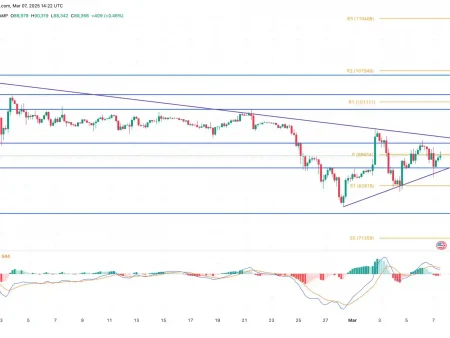In the heated political climate of the United States, financial analyst Michael A. Gade recently noted that the growing national debt, which now exceeds $35 trillion, poses a greater threat to democracy than political leadership. Gade points out that the rate of debt growth is outpacing both tax revenues and inflation, creating an unstable fiscal environment.
The U.S. federal debt-to-GDP ratio, which has risen from 52.65% in 1960 to 122.33% today, further illustrates the unsustainable nature of the country’s fiscal policy. The likelihood of a severe economic downturn becomes more pronounced as the debt grows unchecked.
The US national debt has reached $34.9 trillion. The debt per citizen is $103,568, while the debt per taxpayer has grown to $266,953. The US federal budget deficit is also significant: the official figure is $1.8 trillion, while the actual deficit exceeds $2 trillion.

In response to Gayeed’s comments, Erik Voorhees, founder of ShapeShift and a prominent voice in crypto, emphasized the gravity of the situation. Voorhees argues that growing debt, regardless of presidential administrations, is an imminent economic threat. He predicts that the relentless growth of government debt will lead to a catastrophic collapse of the bond market, leading to widespread financial collapse.
Voorhis also suggests that the current political landscape, represented by leaders like Trump and Biden, cannot mitigate this trajectory. The projected annual debt increase of more than $1 trillion under any plausible scenario illustrates the dire financial outlook. This unsustainable debt growth, Voorhis argues, is a greater threat to democracy than any single political figure.
The implications of such an economic collapse are profound. Voorhees imagines a scenario in which society could emerge from this chaos with dignity and principle, potentially becoming more prosperous. However, this would be a significant departure from the 20th-century vision of large nation-states. He argues that Bitcoin or similar decentralized assets are critical to this transformation. With its inherent game theory economics, Bitcoin could prevent the monetary debasement that fuels the rise of large nation-states.
Bitcoin’s status as a more durable asset than fiat currencies, which has yet to be fully realized, could be crucial to this shift. Voorhees believes that because Bitcoin is perceived as a more stable store of value over generations, it could curb the expansion of large nation-states by limiting their ability to inflate their currencies.
If the Republicans win in November, Voorhees argues, Trump and Vance are unlikely to significantly reduce the debt, but they could create an environment in which cryptocurrency can thrive. In doing so, they would allow cryptocurrency’s roots to become embedded in the cultural and economic landscape, potentially making them resilient enough to withstand the expected financial shocks.
“The best thing Trump/Vance can do during their administration, since they can’t (and won’t) significantly reduce the debt situation, is to create a four-year grace period during which crypto can thrive without being prosecuted.”
Voorhees’s view reflects a broader sentiment within the crypto community, which views decentralized digital assets as a potential hedge against the economic instability of massive government debt. The crypto industry’s ability to provide an alternative to traditional fiat systems could be critical to overcoming future financial challenges.
























